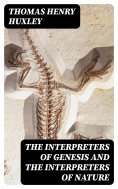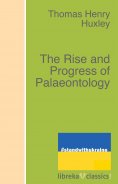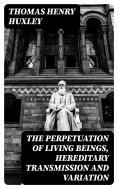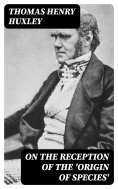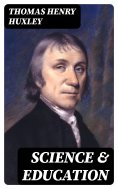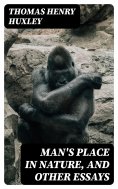Evidence as to Man's Place in Nature
Über das eBook
In "Evidence as to Man's Place in Nature," Thomas Henry Huxley employs a rigorous scientific approach to explore humanity's evolutionary roots. Written during the late Victorian era—a time of burgeoning scientific discovery—Huxley's work synthesizes paleontological evidence, anatomical observations, and comparative biology to argue that humans are part of the natural continuum of life. His literary style is clear and persuasive, characterized by logical reasoning and a commitment to empirical evidence, which reflects the spirit of inquiry prevalent in the emerging field of evolutionary biology during this period. Huxley, often dubbed 'Darwin's Bulldog' for his advocacy of Charles Darwin's theories, was a biologist and anthropologist who played a pivotal role in popularizing evolutionary thought. His background in comparative anatomy and his own struggles against the prevailing dogmatic views of his time likely inspired him to confront societal norms regarding humanity's place in the natural order. Huxley's intellect combined with his commitment to scientific truth positions him as a crucial figure in the history of science. This book is essential for anyone interested in the intersections of science, philosophy, and human identity. Huxley's insights resonate today, urging readers to reflect on the implications of evolution for understanding our own nature. It is a compelling read for scholars, students, and curious minds alike.
In this enriched edition, we have carefully created added value for your reading experience:
- A succinct Introduction situates the work's timeless appeal and themes.
- The Synopsis outlines the central plot, highlighting key developments without spoiling critical twists.
- A detailed Historical Context immerses you in the era's events and influences that shaped the writing.
- A thorough Analysis dissects symbols, motifs, and character arcs to unearth underlying meanings.
- Reflection questions prompt you to engage personally with the work's messages, connecting them to modern life.
- Hand‐picked Memorable Quotes shine a spotlight on moments of literary brilliance.
- Interactive footnotes clarify unusual references, historical allusions, and archaic phrases for an effortless, more informed read.
Über den Autor
Thomas Henry Huxley (1825–1895), often referred to as 'Darwin's Bulldog' for his unwavering support of Charles Darwin's theory of evolution, was a distinguished English biologist, anthropologist, and a vocal advocate for the scientific method. Born on May 4, 1825, in Ealing, Huxley pursued a rigorous education in medicine and specialized in comparative anatomy. His contributions to scientific debates and public understanding of science were profound, particularly through his emphatic defense of evolutionary theory. In his seminal work 'Evidence as to Man's Place in Nature' (1863), Huxley presented anatomical and embryological evidence to argue for the evolutionary connection between humans and apes, which was controversial at the time. His accessible writing style, combined with a strong commitment to education reform, made science more understandable and approachable to the Victorian public. Huxley's literary output reflects his passion for rigorous scientific inquiry and secularism, and his essays and lectures often navigated the intersection of science and society. As a prolific writer, his works extend beyond 'Evidence as to Man's Place in Nature' to include 'On the Origin of Species', 'Lay Sermons, Addresses, and Reviews', and 'On the Physical Basis of Life'. His legacy includes his advocacy for public education and the professionalization of the sciences, influencing generations of scientists and thinkers.
Produkt Details
Verlag: DigiCat
Genre: Sprache - Englisch
Sprache: English
Umfang: 49 Seiten
Größe: 1,3 MB
ISBN: 8596547122432
Veröffentlichung: 1. August 2022



